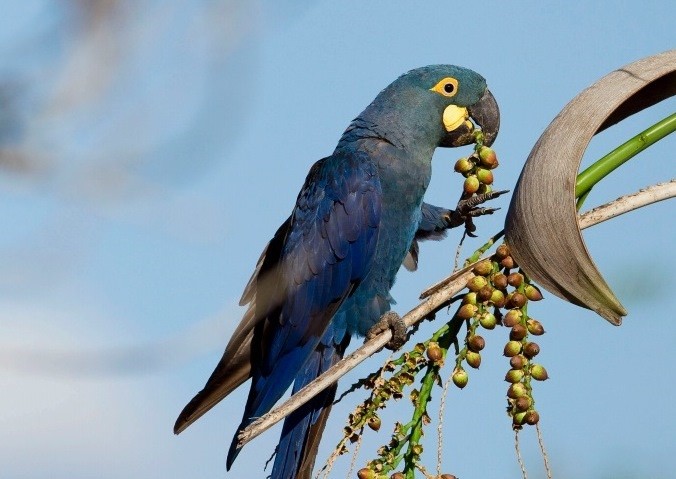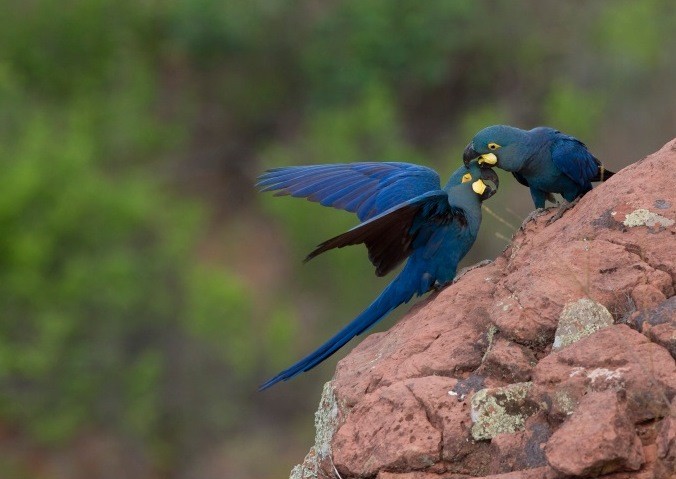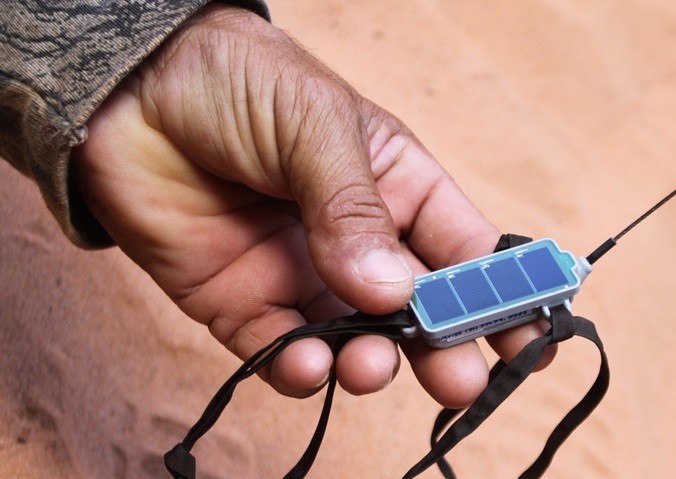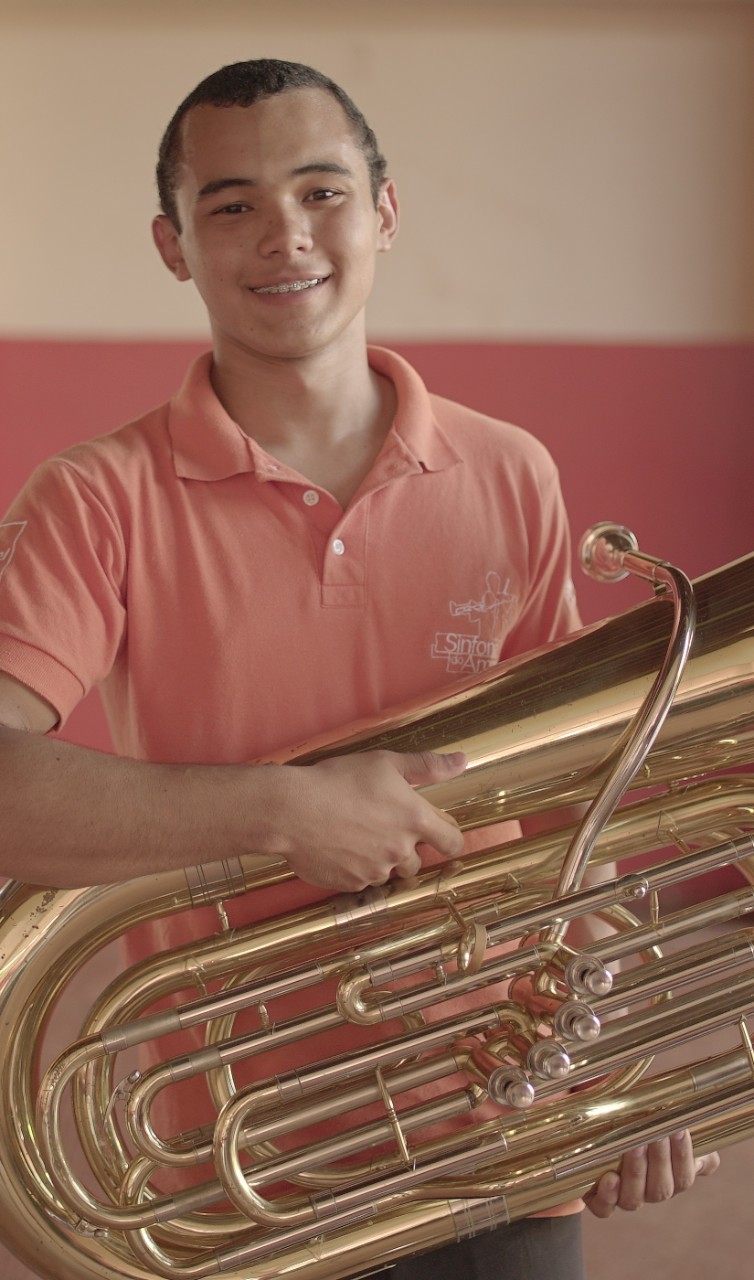If you have ever been lost in a strange place, you know it is not a great feeling. At such moments GPS technology is one of the main tools to help us navigate our location. However, Global Positioning System can have many other uses in addition to helping humans to get out of a tight spot.
With that in mind, Enel Green Power employees had an idea: to use the technology to fight the extinction of species that inhabit the areas surrounding our sustainable energy plants. The tests, conducted by the Environmental Discipline team, started in May at the Delfina Wind Farm, in Bahia. For the first time, GPS devices are being used to ensure the preservation of the environment and the survival of a native species: the Lear’s macaw.
One of the treasures of the caatinga of Bahia, currently there are only 1,260 birds of the species living in the wild, which means Lear’s macaw is considered functionally extinct. Now, this sad situation could be changed thanks to Enel Group’s innovative action.
Helping to preserve a typical bird of Northeastern Brazil
GPS devices have been installed on four animals. In addition to allowing the monitoring of movement, dispersion and the use of the natural habitat, the technology allows researchers to determine the macaws’ favourite places for feeding, resting and mating – invaluable information for the studies that aim to save the species.
The specialists leading the field research have been analysing the data received, which will also be made available to other environmental agencies, and intend to conduct the same experiment on six birds that will be acquired by Enel Green Power and, following a period of adaptation, will be released in the Boqueirão da Onça region, close to the Delfina Wind Farm.







